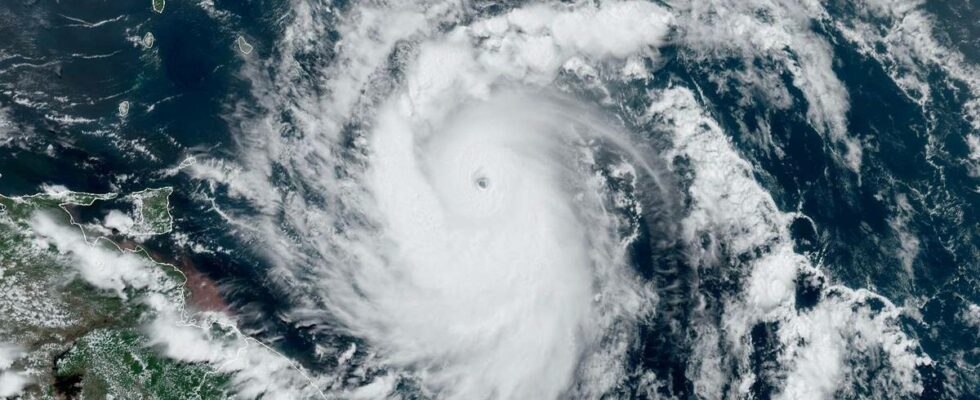Hurricane Beryl is classified as category 4 by the US authorities. This means that it is extremely dangerous, according to CNN. According to the channel, it is the first time there has been a hurricane in the Atlantic in June, as long as measurements have been made. The hurricane season in the Atlantic thus begins earlier than ever this year. On average, storms in the Atlantic begin on August 11. There are several reasons for that, says climate researcher Bjørn Samset to news. – The sea surface is steadily getting a little warmer from year to year, he explains. He says there are also natural fluctuations that make the sea extra warm this year. – It has been like this for a while. So we had to enter a hurricane season already with very warm ocean water, says the climate scientist. A hurricane warning has been issued for the holiday destinations of Barbados, Saint Lucia, Saint Vincent, Grenada, Tobago and the Grenadines. The hurricane authority NHC expects the hurricane to make landfall on Monday evening local time. They also expect the hurricane to continue to be a Category 4 storm when it makes landfall. Residents of the holiday paradise of Barbados prepare for the hurricane by covering the windows of their homes. Photo: AP There will be more powerful hurricanes The American Meteorological Institute (NOAA) believes that there may be twice as many powerful hurricanes in the Atlantic Ocean this year as it usually does. Samset says residents in hurricane-prone areas will probably have to get used to early and powerful hurricanes in the coming years. – It has to do with global warming. The water is warmer than before. And the air is warmer than before. This means that when the hurricane first forms, the air can hold more moisture, he explains. According to the climate scientist, warm air helps the hurricane to hold a lot of water. That moisture turns into rain and wind when the hurricane hits land. In addition, warm seas increase the chance of hurricanes becoming more powerful than before. – There are several things at once that mean that when the hurricanes first form, now in a warmer world, they become more powerful than before, says Samset. According to NOAA, the temperature at the surface of the Atlantic Ocean is around 25 degrees. Photo: NOAA It is the second highest level that the American hurricane center NHC uses in its system. On their website, they assess that category 4 hurricanes leave behind “catastrophic damage”. – This is a storm with significant danger to life on the islands it hits, if it continues as they have predicted, says Samset. – We will not get rid of this global warming. He emphasizes that you can never be completely sure that estimates are correct before the storm has hit, but believes that there are many indications that the estimates from the US authorities are correct. – They are probably doing intense work to prepare and evacuate where possible. That’s what we can do. There, we are well underway with climate adaptation and preparations for the storm already. Hopefully NOAA and others have notified early enough that things will go well. The inhabitants of the affected islands are encouraged to have emergency stocks in order, as well as to trim trees and bushes and empty clogged drains, in preparation. In several places, crisis preparations are now in full swing, CBS News and AP report. Cars line up at a petrol station in Bridgetown, Barbados before Hurricane Beryl makes landfall. Photo: AFP – It shows how extremely important it is to continue to monitor the weather and storms in this way, so that we can see them before they hit land. Because the temperature in water and on land is not going to be lower in our lifetime, or many generations after us, says Samset. Bjørn Samset is a physicist and climate researcher at the Cicero Center for Climate Research. Photo: Robert Rønning / Robert Rønning / news – We will not get rid of this global warming again. There will also be more of it before we manage to overcome it. The world and the oceans in particular are not getting colder again. – That more powerful hurricanes will cause more damage, we just have to accept that. They come. What we can do, however, is prepare ourselves at the other end. We can have good warning systems. It is then possible to secure and evacuate. And then we can rebuild the areas that are most exposed. So that we are better adapted to a system with stronger hurricanes. Published 30.06.2024, at 23.01
ttn-69
Extremely dangerous hurricane approaches islands in the Caribbean – first June hurricane in the Atlantic Ocean ever – news Urix – Foreign news and documentaries

